Understanding the Journey of Siblings in Special Needs Families
Growing up alongside a sibling with special needs presents a unique blend of emotional, psychological, and social experiences. While these relationships are often marked by love, resilience, and deep connections, they can also involve challenges like feelings of neglect, jealousy, and social isolation. This article explores the diverse experiences of siblings, highlighting their emotional responses, support strategies, and the profound impact these relationships have on personal development and family dynamics.
Early Awareness and Emotional Reactions
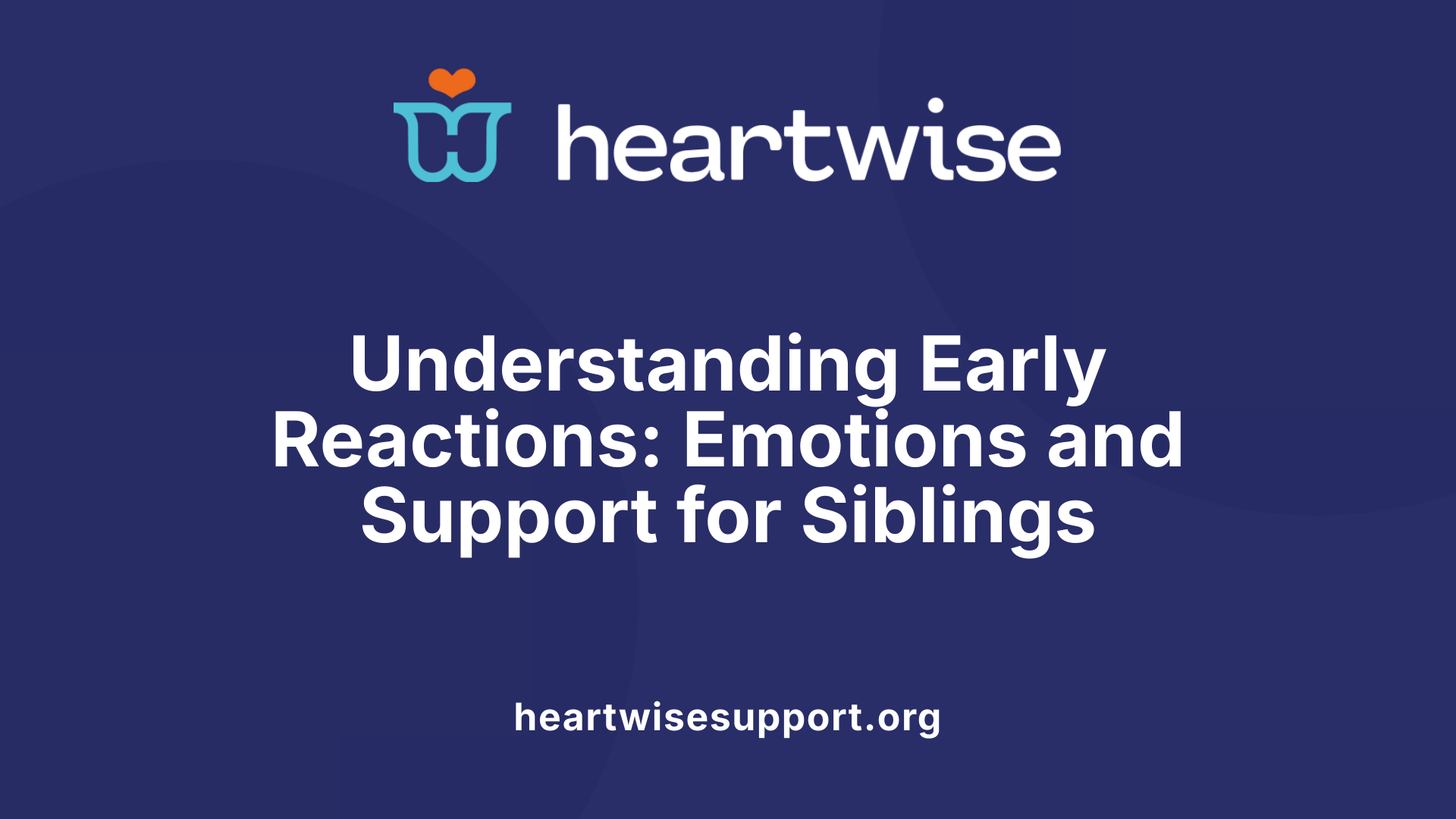
How does having a sibling with special needs affect you?
Siblings of children with disabilities often grow up with a profound sense of maturity and tolerance for those who have differences, as they understand that differences should be celebrated. They also develop high levels of patience and emotional intelligence, with a strong insight into the human condition.
Initially, many siblings are unaware of the exact nature of their brother or sister’s disability. They typically find out around the ages of 6 to 8, often through indirect experiences such as overhearing conversations or noticing differences in their sibling's appearance or behavior.
This early discovery can be shocking and confusing. Many young siblings experience overwhelming fear, driven by irrational beliefs. They might worry about being abandoned, or harbor feelings of guilt, thinking they might have caused their sibling’s condition. These feelings are common as children try to make sense of the new reality in their family.
As children become aware of their sibling’s disability, they often exhibit resistance behaviors. This can include regressing to earlier developmental stages, expressing denial or non-acceptance, or pretending their sibling is normal to avoid confronting the difference.
Such emotional reactions reflect the difficulty children face in processing complex and upsetting information at a young age. Recognizing these early responses is crucial for supporting siblings’ emotional well-being as they navigate this transformative experience.
Shaping Perceptions and Resistance
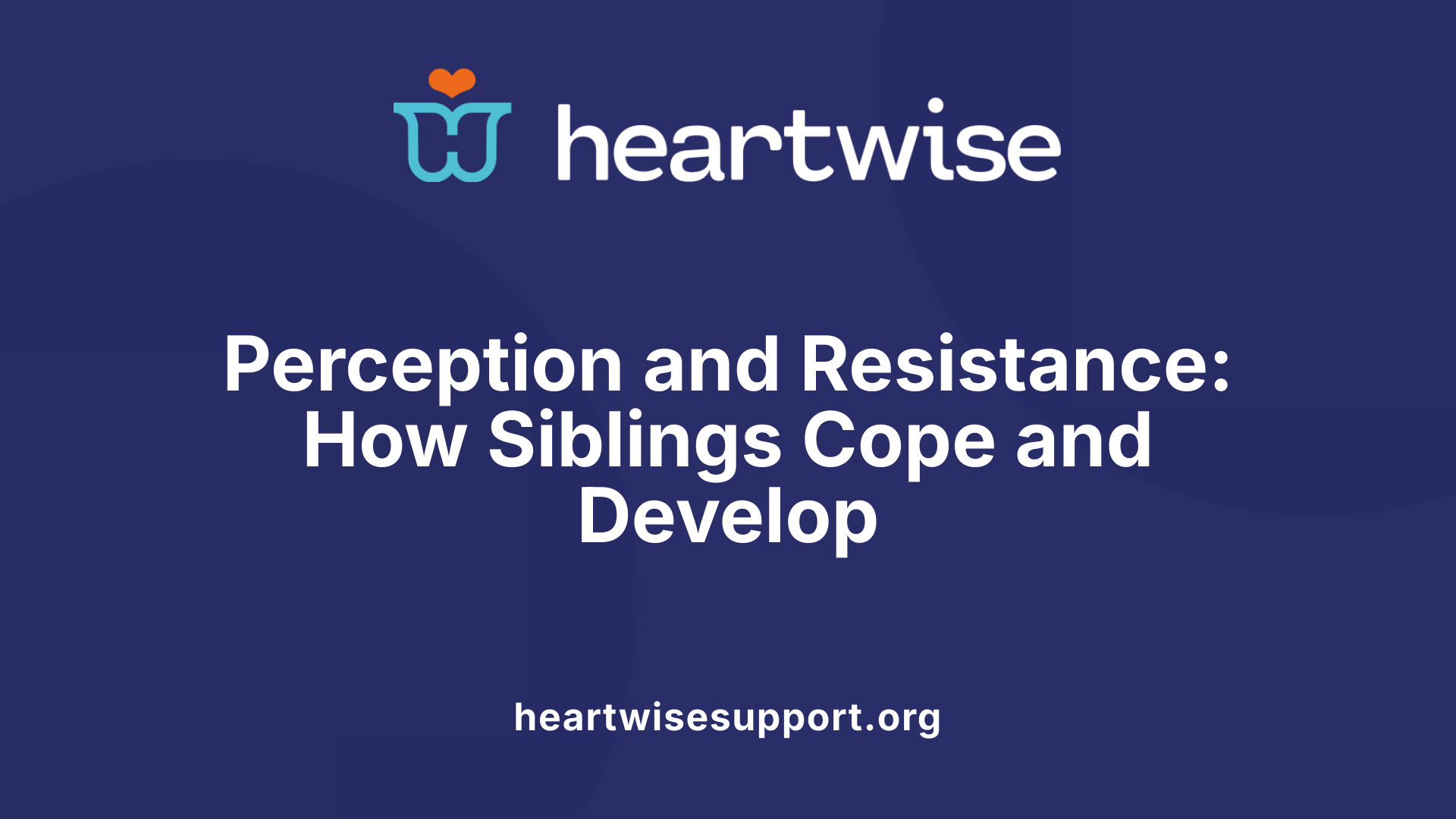
When do siblings of children with disabilities typically learn about their sibling's condition?
Most siblings first become aware of their brother or sister’s disability between the ages of 6 and 8. During this period, children generally overhear conversations, notice differences in their sibling’s behavior or development, or observe medical equipment and other cues that hint at something different about their sibling.
Initially, they often learn about the disability indirectly, through observation or casual comments rather than explicit explanations from parents or caregivers. This can lead to feelings of curiosity, confusion, or even fear as they try to understand what they are witnessing.
How do siblings respond with resistance or denial after discovering their sibling's disability?
Once aware of the situation, many siblings exhibit resistance behaviors. These may include regression in their behavior, refusing to accept the reality, or pretending that their sibling is normal or no different. Such reactions serve as coping mechanisms to deal with uncomfortable feelings or to temporarily deny the reality of the disability.
These responses reflect the emotional turmoil they experience, including feelings of sadness, frustration, or helplessness. Resistance behaviors are often a natural part of the adjustment process, helping the sibling to manage their new perceptions.
How does this awareness influence the identity development of siblings?
Recognizing a sibling’s disability significantly impacts a child's sense of identity. Some may feel a heightened sense of responsibility or become more protective. Others might struggle with feelings of guilt or question their place within the family.
Initially, this awareness can create a conflict between acceptance and resistance, shaping how they view themselves and their role within their family. Over time, with proper support and open communication, many siblings learn to integrate their experiences, developing resilience, empathy, and a lifelong understanding of diversity.
What feelings can siblings of children with special needs experience?
Siblings often experience a complex mix of emotions. They might feel frustration, jealousy, or resentment, especially if they perceive they are receiving less attention or resources. Feelings of worry about their sibling’s health or future are common.
However, many also report feelings of love, pride, and protectiveness. Some develop traits like compassion and patience. It is normal for these diverse emotions to coexist, reflecting their ongoing process of adjusting to their family dynamics.
How can families support siblings through these emotional and developmental stages?
Families can help by maintaining open lines of communication, encouraging honest discussions about the sibling’s condition, and providing age-appropriate explanations. Celebrating each child’s achievements and individuality fosters a positive self-image.
Creating opportunities for siblings to share their feelings—through conversations, support groups, or therapy—can alleviate some of the emotional burden. Additionally, involving siblings in caregiving tasks, when appropriate, can promote bonding and a sense of purpose.
Understanding that emotional reactions are natural and offering reassurance, support, and validation helps siblings navigate their experiences, leading to healthier emotional development and a more inclusive family environment.
Complex Emotions During Adolescence
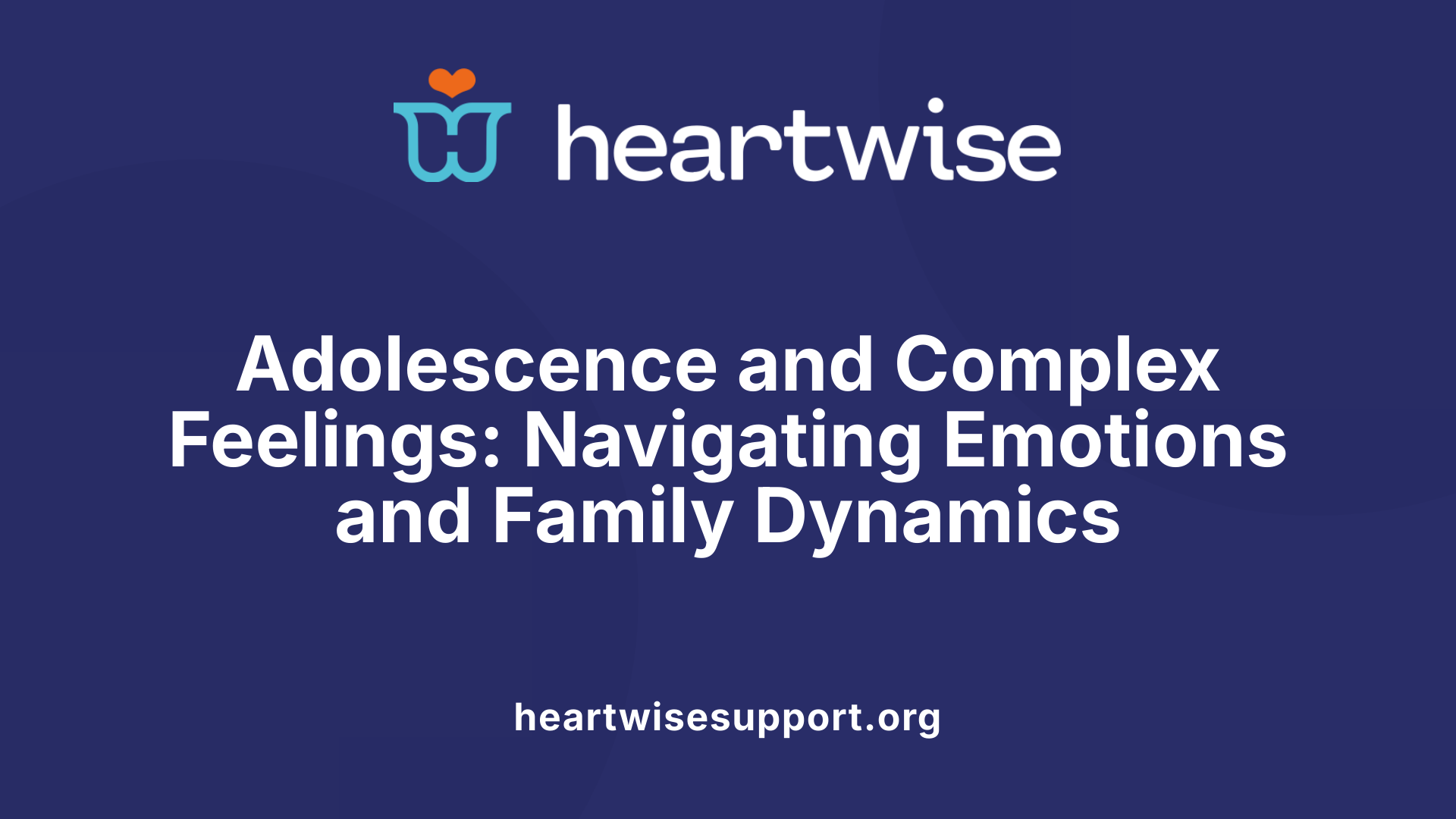
How do unresolved psychological conflicts affect siblings of children with disabilities?
During adolescence, siblings often encounter unresolved psychological conflicts that can significantly impact their emotional health. Feelings of sorrow and regret might emerge as they reflect on their childhood, often questioning why their sibling has a disability and what it means for their future. These internal struggles may lead to feelings of sadness over perceived lost opportunities or normal childhood experiences. The uncertainty about future caregiving responsibilities can also generate worry, anxiety, and in some cases, fear about their own well-being and independence.
What feelings do adolescents experience regarding their sibling's disability and family dynamics?
Adolescents frequently experience ambivalent emotions towards their family members and the situation. They may feel compassion for their parents and recognize the sacrifices made, yet at the same time, they might feel sadness over perceived favoritism and social exclusion. This mix of love, frustration, jealousy, and guilt can complicate sibling relationships and influence their mental health.
How can adolescents cope with these emotional conflicts?
Coping strategies are essential for managing complex emotions. Many adolescents find relief through writing diaries, which provide a safe space to express feelings and process their experiences. Practicing gratitude is another effective technique, helping them focus on positive aspects of their lives and fostering resilience. Engaging in hobbies, maintaining friendships, and seeking support from trusted adults or mental health professionals also play vital roles in emotional regulation.
What role does family communication play in supporting siblings?
Open, honest communication within the family is crucial. Parents can support their children by discussing the sibling's disability in an age-appropriate manner and encouraging siblings to ask questions and share their feelings. Family meetings where everyone’s opinions are considered can help in sharing concerns, understanding each other's perspectives, and planning for the future. Such dialogue helps siblings feel included, respected, and better equipped to handle their emotions.
How can I support siblings of children with disabilities?
Supporting siblings involves acknowledging and discussing their complex emotions openly, helping them understand their sibling’s condition with age-appropriate information. Families should promote open communication, active listening, and regular opportunities for one-on-one time to make siblings feel valued and heard. Encouraging their independence and involvement in family planning and educational meetings can empower them and reduce feelings of resentment. Creating a safe, predictable environment and celebrating each child's achievements foster emotional well-being and resilience. Additionally, connecting siblings with peer support groups like Sibshops and ensuring access to mental health resources can provide valuable emotional support and help them navigate their unique experiences.
Long-term Impact and Family Planning
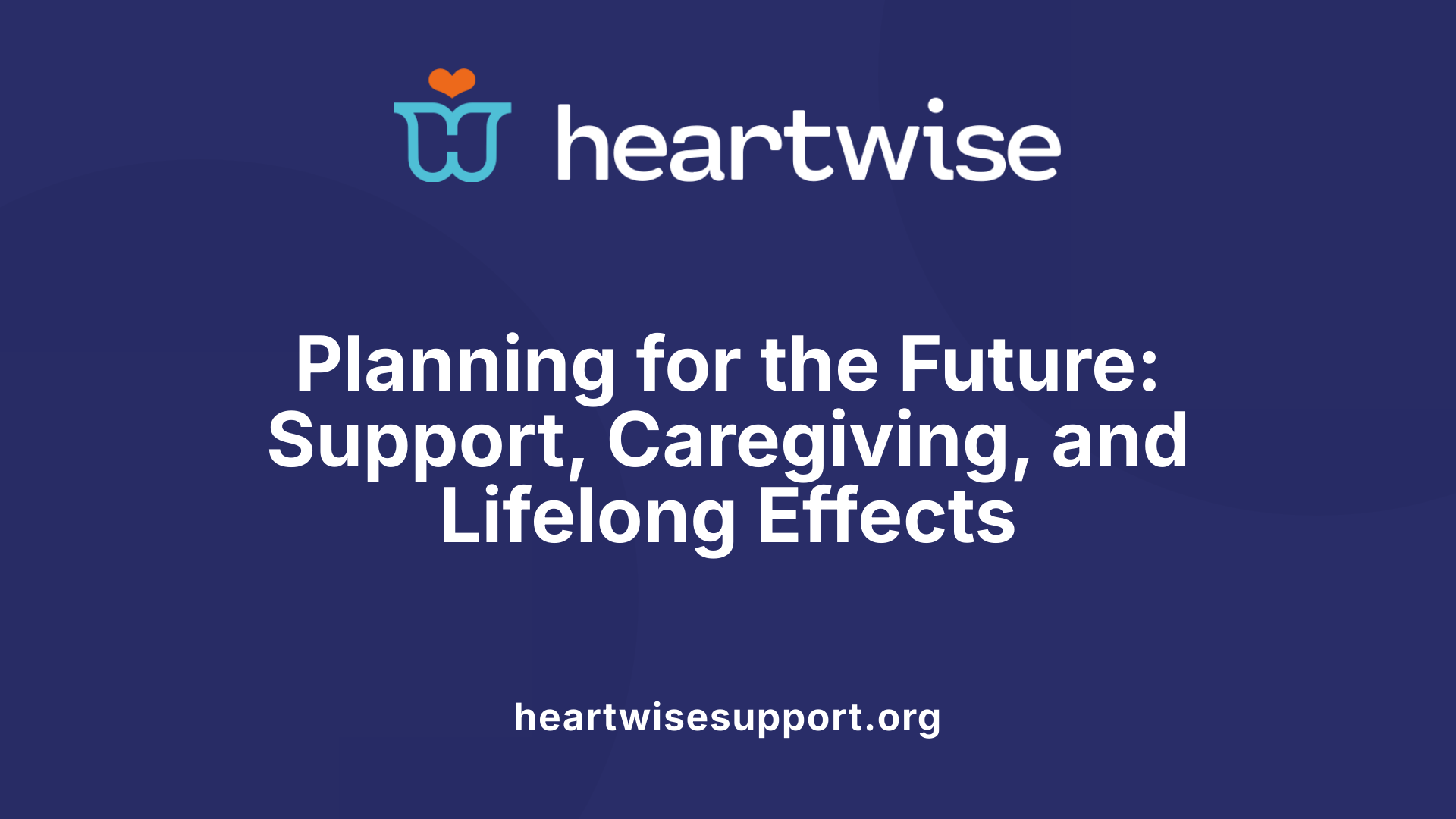
How do adolescents come to accept their sibling with disabilities as part of their life?
Many teenagers learn to accept their sibling’s disability over time, often through family discussions, shared experiences, and their own emotional maturation. Recognition of their sibling as an integral part of their family helps foster acceptance. Adolescents gradually see their sibling beyond their disability, appreciating their personality, strengths, and unique qualities.
Should siblings consider taking on caregiving roles?
As they grow older, some siblings contemplate or assume caregiving responsibilities. While this can deepen their bond and sense of loyalty, parents should communicate openly about future expectations. Planning ensures that siblings understand the responsibilities without feeling overwhelmed. Balancing caregiving with personal development and independence remains important.
What is the outlook on support systems and technological advancements?
Many adolescents express optimism about future support resources. They believe that policy adjustments, community support, and technological innovations will improve their sibling’s quality of life. Developments in assistive devices, therapies, and inclusive policies can ease caregiving burdens and foster greater independence for their siblings.
What are the lifelong consequences of growing up with a sibling with disabilities?
Living with a disabled sibling influences individuals throughout their lives. It often cultivates empathy, resilience, and a strong sense of responsibility. These traits can lead to positive outcomes in personal relationships, careers, and community involvement.
Here is a summarized overview of the long-term effects and considerations:
| Aspect | Description | Impact on Siblings |
|---|---|---|
| Acceptance | Recognizing sibling as part of family | Long-term emotional bonding |
| Caregiving | Considering future roles | Responsible, supportive behaviors |
| Support System Outlook | Optimism for resources | Enhances independence and quality of life |
| Lifelong Effects | Emotional and social development | Increased empathy, tolerance, resilience |
Overall, growing up with a sibling with disabilities can enrich a person’s character and foster qualities that benefit them throughout life. While challenges exist, many report that their experiences lead to more meaningful relationships and a compassionate outlook.
The Evolving Nature of Siblings’ Experiences
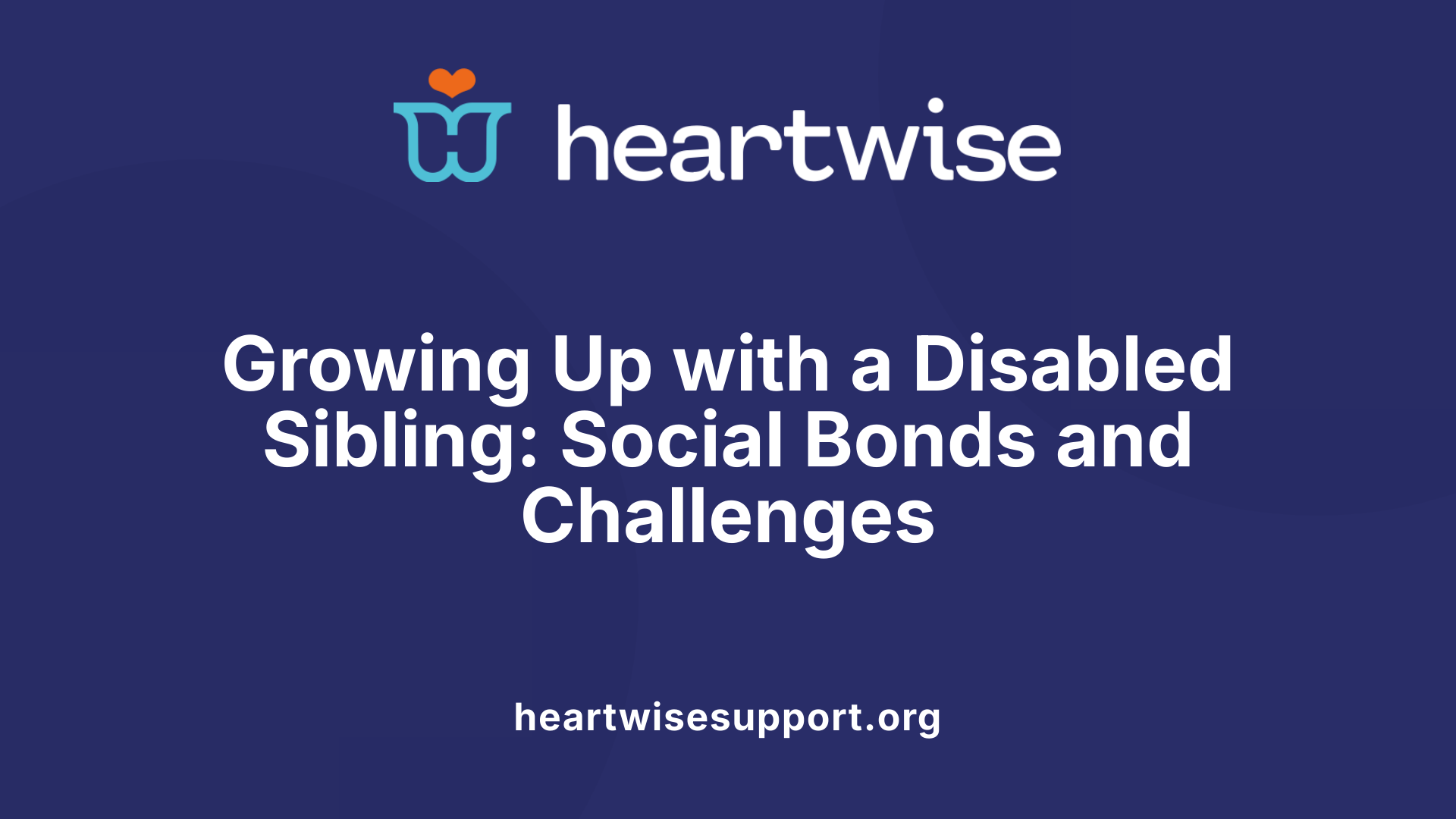
How do growing up with a sibling with a disability impact social development?
Growing up with a sibling who has a disability can have complex effects on social development that change over time. During childhood and adolescence, siblings often develop increased empathy, patience, and an understanding of diversity. These traits can lead to stronger, more compassionate social bonds, and a greater ability to relate to others’ differences.
However, these positive traits may be accompanied by challenges. Many siblings report feelings of social isolation due to social stigma, family focus on the disabled sibling, or a lack of peer understanding. They might find it difficult to explain their family situation to friends, which can impact peer relationships.
Research suggests that these uneven family dynamics can also lead to feelings of jealousy or resentment. Some siblings may feel overlooked or unfairly burdened, which could hinder their social confidence or cause emotional distress.
A study conducted among twins in Israel found that typically developing siblings of children with disabilities scored higher in cognitive empathy, hinting at enhanced understanding and relational skills. Nonetheless, they sometimes face stress that affects their overall well-being.
In the long run, these experiences can translate into traits like responsibility, loyalty, and increased tolerance. Many siblings also develop advocacy skills, speaking up for their sibling or explaining their condition to others.
Despite the challenges, support systems such as family, friends, and therapeutic services can help siblings balance their emotional and social needs. Engaging in extracurricular activities and support groups often benefits their social confidence, helping mitigate feelings of loneliness.
In summary, while growing up with a disabled sibling presents certain social hurdles, it also offers opportunities for developing resilience and empathy. Tailored support and open family communication are vital to helping siblings navigate these evolving experiences.
Supporting Strategies and Resources
How can I support siblings of children with disabilities?
Supporting siblings of children with disabilities involves understanding and addressing their emotional and psychological needs. It begins with fostering open dialogue within the family. Parents should encourage honest conversations about the sibling’s condition, tailored to the child's age, to help dispel misconceptions and reduce feelings of guilt or fear.
Family meetings play a vital role in creating a safe space for sharing feelings, discussing responsibilities, and expressing concerns. These meetings can also be an opportunity to plan for the future, clarify roles, and involve siblings in decision-making, which fosters a sense of inclusion and control.
Community resources and peer support groups are invaluable. Organizations like the Sibling Support Project, SibTeen Facebook page, and Sibs provide platforms for siblings to connect, share experiences, and receive emotional support. Attending groups such as Sibshops, which are designed specifically for siblings, can help children learn coping strategies and build friendships with peers facing similar challenges.
Providing age-appropriate information about the sibling’s disability is another essential support strategy. Honest explanations tailored to the child's developmental level can alleviate confusion and misconceptions. For example, young children might understand simple notions of differences, while teenagers can learn about caregiving roles and future planning.
Encouraging independence and involvement in family routines can also promote resilience. Giving siblings individual attention, supporting their interests, and involving them in family activities boosts self-esteem and helps balance their needs with caregiving roles.
In summary, a combination of open communication, family involvement, peer support, and appropriate information fosters a supportive environment for siblings. This approach helps them develop understanding, resilience, and empathy, enabling them to navigate their unique experiences positively.
Embracing the Siblings’ Journey with Compassion and Support
Growing up with a sibling who has a disability shapes an individual's emotional, social, and psychological outlook in profound ways. While challenges such as feelings of neglect, social exclusion, and emotional conflicts are common, the positive traits fostered—like empathy, resilience, and loyalty—are invaluable lifelong assets. Family support, open communication, and community resources play crucial roles in helping siblings navigate their complex experiences. Recognizing and reinforcing their unique journey encourages personal growth and strengthens familial bonds, ultimately fostering a culture of understanding, acceptance, and support for all members.
References
- A Study on the Life Experiences of Adolescents Who Grew up with ...
- Growing Up With a Sibling With a Disability | MGH Clay Center for ...
- Siblings of Children with Disabilities | Navigate Life Texas
- The Experiences of Siblings of Individuals with Special Needs
- Experiences of siblings of children with profound intellectual and ...
- Learning to Thrive as a Sibling of a Special Needs Child
- Challenges and Benefits of Having a Sibling with Special Needs











